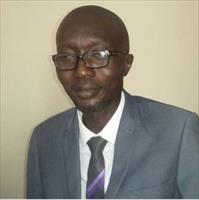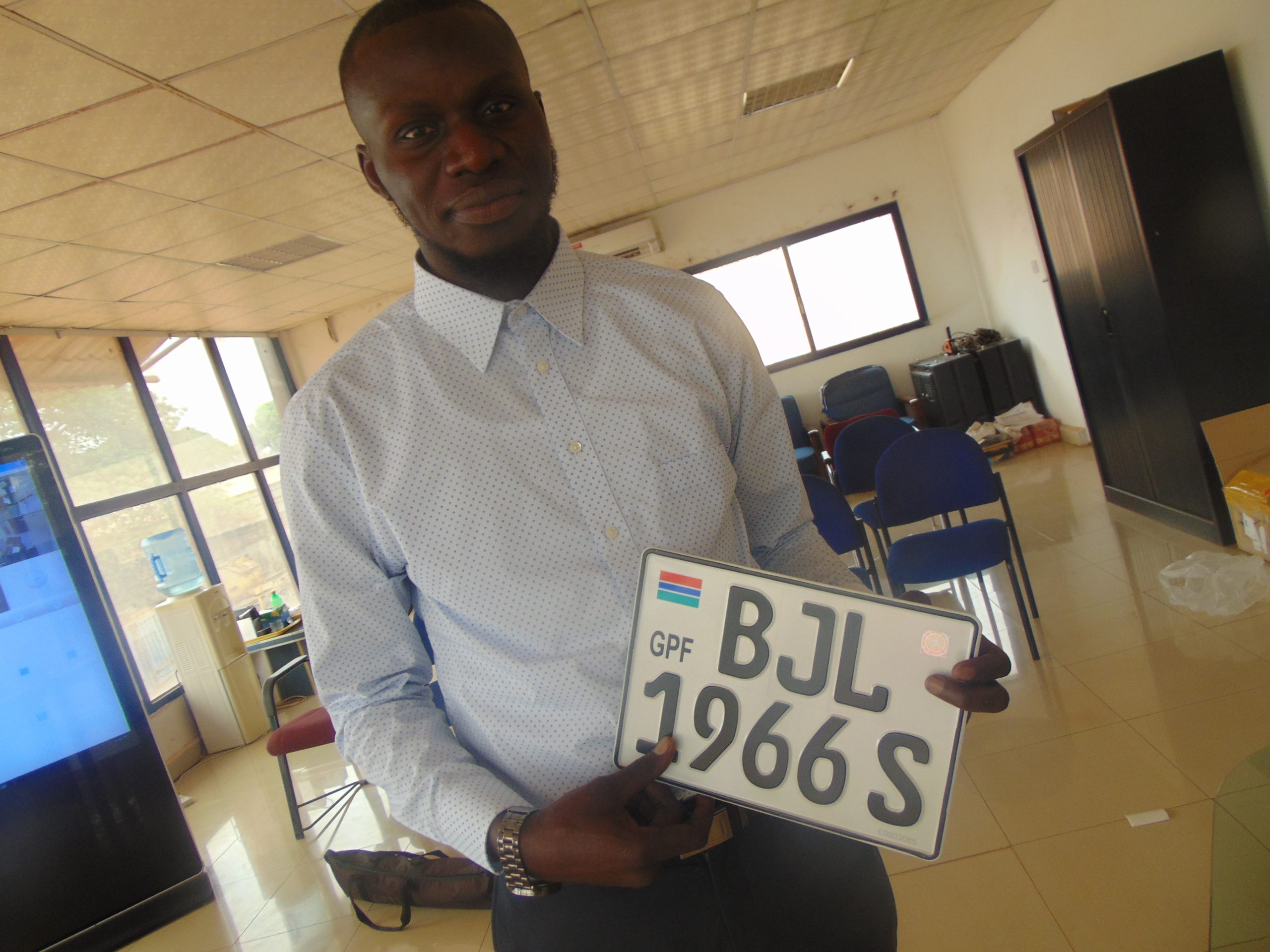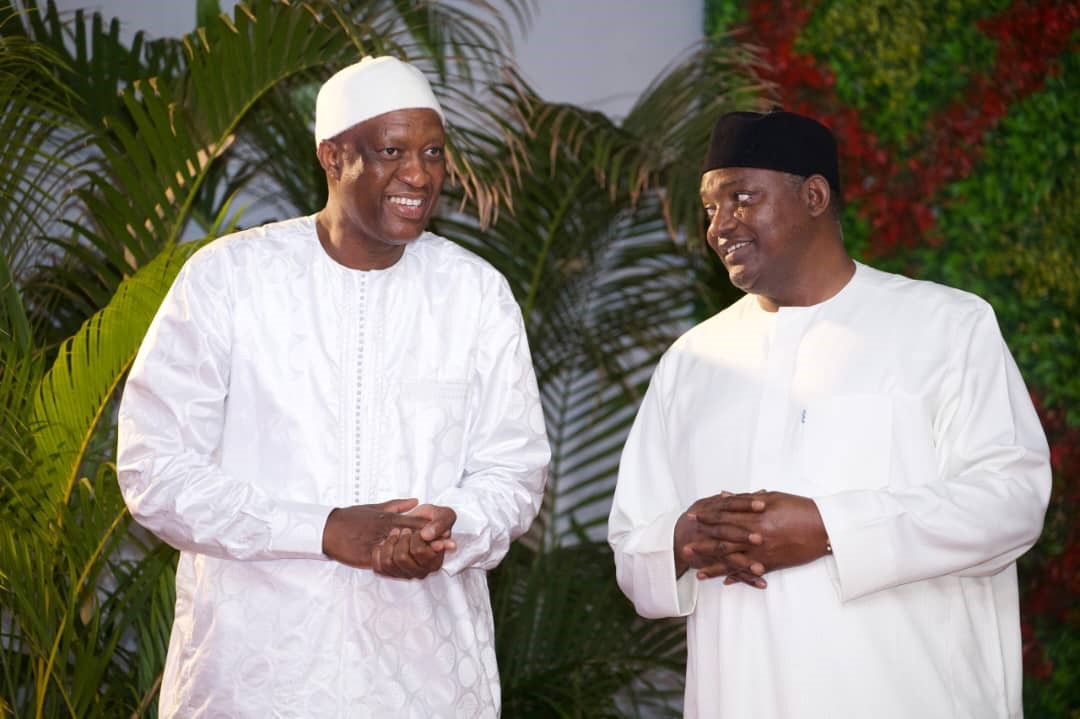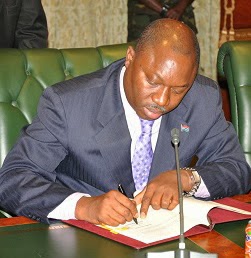By Adama Makasuba
The Gambian economy rebounded strongly in 2018 and the prospects are favorable, with implementation of sound macroeconomic policies and reforms, according to Gambia’s Central Bank governor, Bakary Jammeh.
Speaking Thursday at Central Bank monetary policy committee press briefing, he said indicators show that private investment has picked up significantly with the return of confidence, adding the the Gambia Bureau of Statistics (GBoS) estimated the economy to have grown by robust 6.5 percent in 2018 compare to 4.8 percent in 2017.
According to him, this performance was broad-based, driven mainly by the services sector, including tourism and trade, financial services and insurance, transport and telecommunication.
He also said agricultural production recovered from a contraction of 4.4 percent in 2017 to grow by 0.9 percent in 2018.
However, he stated that climatic factors such as delayed rainfall, flooding and long dry spells continue to significantly affect crop yields, noting that early economic indicators show that growth will remain robust in 2019.
“The external position of The Gambia continues to improve, thanks to the support from our development partners, and increases in remittances, tourism and foreign direct investment.
Preliminary balance of payments (BoP) estimates indicate that the current account balance registered a surplus of US$4.1 million (0.2 percent of GDP) in the first quarter of 2019 compared to a deficit of US$7.3 million (0.5 percent of GDP) in the corresponding quarter in 2018,” he outlined.
He added that the surplus in the services account increased by 47.3 percent to US$46.5 million in the first quarter of 2019, compared to US$31.6 million in the corresponding period a year ago, explained largely by the successful tourism season.
“The deficit in the goods account, however, widened to US$ 85.1 million (4.8 percent of GDP) in the corresponding period in 2018.
This is due to increase in imports to US$ 125.3 million or by 23.8 percent from US$ 101.2 million in the same period in 2018. Exports also increase to US$ 35.8 million or by 45.3 percent during the period under review. International reserves remains at 5 months of current imports of goods and services,” he pointed out.
Governor Jammeh further said, the domestic foreign exchange market continues to function smoothly, revealing that transaction volumes increase to US$ 2.1 billion in the year to end March 2019 compared to US$ 1.7 billion in the corresponding period a year ago.
He said from January to March 2019, volume of transaction amounted to US$ 638.5 million compared to US$ 507.9 million in the fourth quarter of 2018, an increase of 25.7 percent.
“In the year to end-March 2019 purchases of foreign currency, which indicates supply, increase to US$ 1.02 billion or by 18.1 percent from a year ago. Similarly, sales of foreign currency rose significantly by 20.0 percent to US$ 1.03 billion in the same period.
From January to March 2019, purchase increase to 320 million or by 28.3 percent, while sales expanded to US$ 318.0 million or by 23.3 percent from the previous quarter,” Governor Jammeh said.
According to him, exchange rate of the Dalasi remains broadly stable and from April 2018 to April 2019. The dalasi appreciated against the pound sterling, euro and CFA by 2.3 percent, 2.6 percent and 0.9 percent, respectively, saying however, it depreciated against the U.S. dollar by 4.8 percent.
He also said government fiscal operation for the first three months of 2019 showed that the budget deficit (including grants) narrowed to D0.8 billion (1.0 percent of GPD) from D1.0 billion (1.4 percent of GDP) recorded in the first quarter of 2018.
He added: “Revenue and grants mobilized during the quarter under review increased by 22.0 percent to 3.3 billion (4.2 percent of GDP) from D2.7 billion (3.9 percent of GDP) in same period last year. Domestic revenue, which comprises tax and non-tax revenues, stood at D2.4 billion (3.4 percent of GDP) in the corresponding period year ago.”
He revealed that Government expenditure and net lending for the first three months of 2019 increased by 11.2 percent to D4.1 billion (5.2 percent of GDP), adding that recurrent expenditure increase by 2.4 percent to D3.0 billion (3.8 percent of GDP) compared to D2.6 billion (3.7 percent of GDP) in the first quarter of 2018.
He also disclosed that capital expenditure declined by 3.3 percent to D1.1 billion (1.4 percent of GDP) on account of the decrease in grants.
“In May 2019, stock of domestic debt increased to D31.8 billion (41.9 percent of GDP) from D31.2 billion (39.2 percent of GDP) in the corresponding period a year ago. Stock of Treasury and Sukuk-Al Salam bills increased by 6.1 percent to D18.4 billion during the period under review from D17.4 billion a year ago.”
The yields on the 91-day Treasury bills declined from 5.87 percent at end-April 2018 to 4.73 percent at the end –April 2019. In contrast, the 182-day and 364-day Treasury bills rates increased from 5.93 percent and 9.23 percent to 6.85 percent and 9.51 percent, respectively,” Governor Jammeh pointed out.





